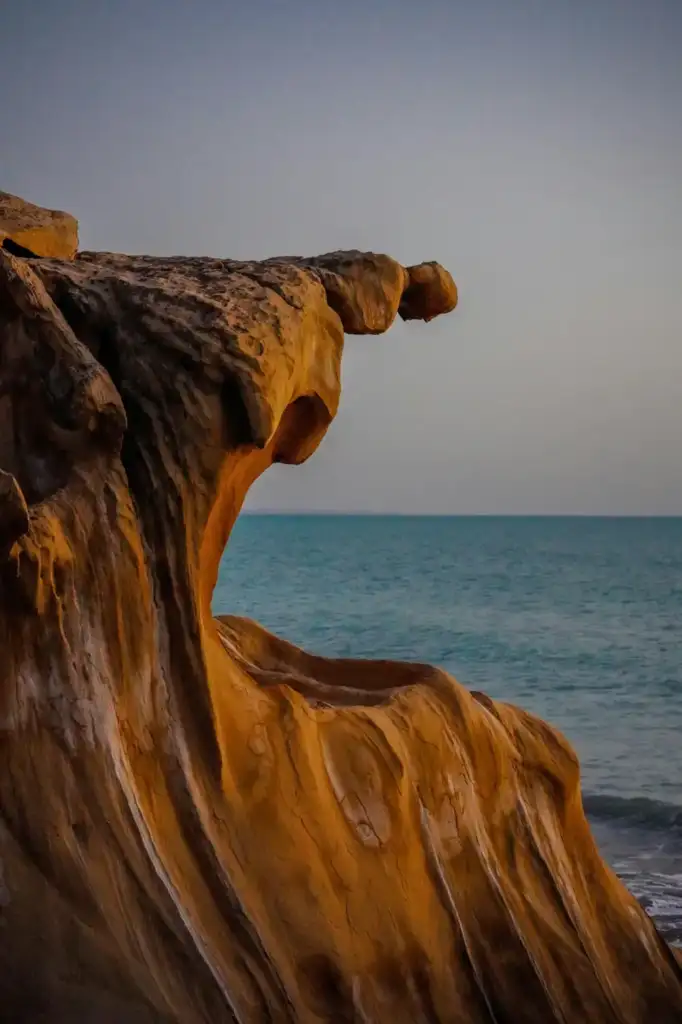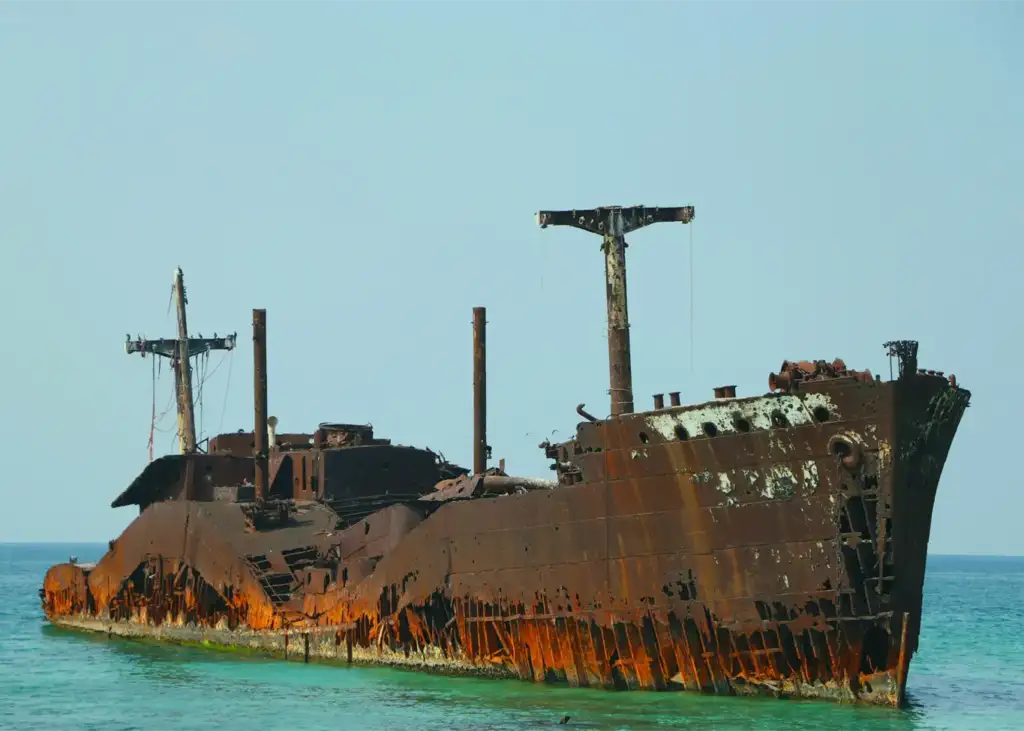
Kish Island
Nestled in the Persian Gulf, Kish Island emerges as a gleaming jewel among Iran’s islands, attracting visitors with its blend of natural beauty, rich history, and modern amenities. This coral island, part of the Hormozgan province of Iran, is not only a tourist haven but also a hub for international trade, thanks to its free-trade zone status. With its crystal-clear waters, sandy beaches, and year-round sunny weather, Kish Island offers a unique blend of relaxation and adventure, making it an intriguing destination for travelers seeking to explore beyond the mainland of Kish Iran.
This article delves into the multifaceted allure of Kish Island, from its historical significance dating back over a thousand years to its current role in the economy and infrastructure of the region. Examining the island’s geography and climate lays the foundation for exploring the myriad tourist attractions that make Kish a must-visit destination.
Highlights include shopping malls that rival those found in major cities, leisure centers such as the renowned Dolphin Park, and the convenience of Kish International Airport, ensuring easy access to this hidden gem. Furthermore, the article will touch upon the economic significance and the well-developed infrastructure that supports Kish Island’s bustling tourist industry and its contribution to the broader Persian Gulf region.
History of Kish Island
Ancient Origins and Notable Events

- Kish Island, historically known as Kamtina, Arakia, Arakata, and Ghiss, has a rich history dating back about 3,000 years.
- The island’s first known mention dates back to 325 BC when Alexander the Great commissioned Nearchus, leading to the earliest recorded observations of Kish, then known as Arakata.
- The famed explorer Marco Polo, during his visit to the Imperial court in China, remarked on the exquisite pearls worn by the Emperor’s wife, which were said to have originated from Kish.
Historical Significance Through Ages
- During the Achaemenid Era, Kish was under Iranian control and later dominated by the Umayyad Arab caliphs until the Persians regained control under the Buyid dynasty.
- The Seljuks’ era marked a golden age for Kish Island, transforming it into the largest trading center in the Persian Gulf.
- The island was briefly occupied by the Portuguese in 1506 but was reclaimed by Imam Quli Khan during the Safavid Empire in 1621, reinstating it as a recognized part of Iran.
Recent Historical Events
- In March 2007, the island was the last known location of retired FBI agent Robert A. Levinson before his disappearance.
- British singer Joss Stone was deported from Kish in 2019 due to alleged improper documentation, highlighting ongoing strict cultural regulations.
Geography and Climate
Location and Topography
Kish Island, situated in the Persian Gulf, is 19 km from mainland Iran, covering an area of approximately 91 km2 with an elliptical shape. The island’s topography shows modest variations in elevation, with a maximum elevation change of 125 feet and an average elevation above sea level of 20 feet. The surrounding area within 2 miles of Kish is predominantly covered by water (71%) and bare soil (29%), indicating its coral island nature and strategic location amidst the Persian Gulf’s warm and shallow waters.
Climate Conditions

The climate on Kish Island is characterized by long, sweltering summers and comfortable, dry winters, with temperatures ranging from 58°F to 98°F throughout the year. The hot season extends for 4.3 months, with August being the hottest month, while the cool season lasts for 3.1 months, with January as the coldest month. The island experiences a very dry semi-equatorial climate, with an average annual rainfall of 145 mm, and humidity levels around 60% for most of the year. Despite its dry climate, Kish Island boasts the most sunny hours in the region, approximately 3,100 hours per year, making it a sun-lover’s paradise.
Flora and Fauna
Kish Island’s flora includes a mix of annual and perennial grasses, woody and semi-woody plants, adapting to its hot and dry climate. Short shrubs and frutescent, such as mesquite and Bengali fig, are native to the island. The island’s green cover starts in late October and mid-November, offering a unique landscape of green and gray hues. Kish is also home to 30 percent of the bird species in the country, with environmentalists identifying 193 different bird species, including rare and endangered species like the green-backed herons and the crested honey buzzard.
Tourist Attractions
Beaches and Water Activities
Kish Island’s allure is significantly magnified by its stunning beaches and the plethora of water activities available. The island is renowned for its beautiful beaches, characterized by soft white sand and crystal-clear turquoise waters, providing perfect settings for swimming, snorkeling, and a variety of water sports. Among the most popular activities are parasailing, shuttle riding, diving, and jet skiing. The island also boasts the unique experience of submarine scooter diving, allowing visitors to explore the mesmerizing underwater world of the Persian Gulf.
Historical Sites and Museums
In addition to its natural beauty, Kish Island is steeped in history, offering visitors a chance to explore its rich cultural heritage. The Native Anthropology House, a local history museum, is a must-visit to get a closer look at the local culture. This museum, housed in an old residence of one of Kish’s notable figures, showcases the island’s historical narrative and cultural artifacts, providing insight into the lives of its past inhabitants.
Parks and Natural Reserves
Kish Island is not only about beaches and historical sites; it also features lush parks and natural reserves that offer serene escapes. The Dolphin Park, a 70-hectare oasis, is surrounded by over 22,000 palm trees and includes a dolphinarium, butterfly garden, and bird garden, making it a perfect spot for nature lovers. The park’s clean and safe swimming areas, complemented by amenities like warm showers and safe boxes, ensure a comfortable experience for all visitors.
This blend of natural beauty, thrilling water activities, rich historical sites, and serene parks makes Kish Island a comprehensive tourist destination, offering something for every type of traveler.
Economy and Infrastructure
Free Trade Zone
Kish Island serves as a prominent free trade zone, offering significant incentives such as 15 years of tax exemption, no visa requirements for entry, and the possibility of 100% foreign ownership. These benefits are designed to attract and facilitate both domestic and international investments. The Kish Free Zone includes not only Kish but also Hendurabi and the Greater and Lesser Farur Islands, providing a strategic location for trade and commerce since 1969.
Major Projects
The Kish Free Zone Organization has initiated 70 infrastructure projects aimed at enhancing the conditions for investors on the island. These projects span across various sectors including airport and urban development, with a total investment of approximately 33 trillion rials ($785.7 million). The development of these projects is expected to create thousands of jobs and significantly boost the local economy.
Transportation
Kish Island offers a variety of transportation options tailored to the needs of its visitors and residents. The primary mode of public transport is taxis, available in different services such as white close proximity taxis, yellow linear taxis with taximeters, and internet taxis accessible via mobile apps. For those preferring more affordable travel, minibusses cover main routes around the island, linking major tourist and entertainment attractions. Additionally, private cars can be brought to the island under certain conditions, with options for renting luxury vehicles also available, providing flexibility and convenience for exploring the island.
Conclusion
Throughout this exploration of Kish Island, we’ve traversed its rich tapestry of history, marveled at its lush geography and climate, and delved into the vibrant life that makes this island a must-visit destination. From its historical roots as a major trading center to its modern incarnation as a tourist haven and economic hub with a comprehensive infrastructure, Kish Island exemplifies a unique blend of natural beauty and cultural richness. This journey uncovers the island’s multifaceted allure, highlighting its stunning beaches, historical sites, and economic opportunities, which together paint a picture of a destination brimming with potential for adventurers and investors alike.
The significance of Kish Island extends beyond its shores, presenting implications for cultural understanding, economic development, and environmental preservation. It stands as a testament to the harmonious blend of nature and development, offering insights and inspirations for similar regions around the globe. As we conclude our exploration, Kish Island remains a gem in the Persian Gulf, inviting further research and visitation to truly appreciate its splendor and contribution to the broader narrative of human and natural history. This article aims not only to celebrate Kish’s current standing but also to encourage a deeper engagement with its ongoing story of transformation and growth.



